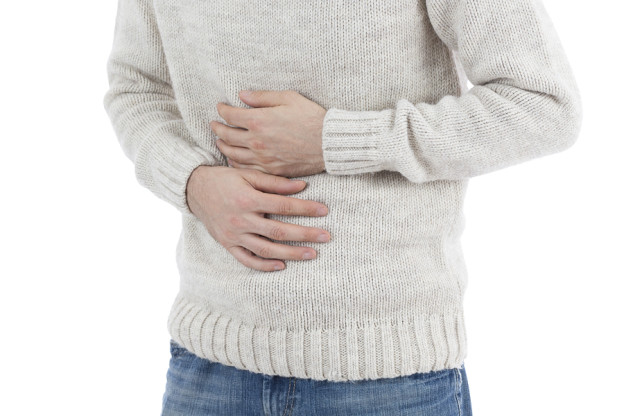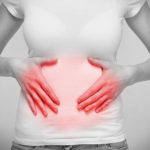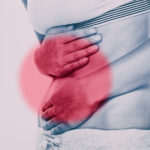By David Blyweiss, M.D., Advanced Natural Wellness
November 30, 2015
- What’s really causing that gas, bloating and abdominal pain?
- When IBS might be something else
- Forego the antibiotics and try this
Don’t you hate it when digestive problems – like bloating, gas, diarrhea and abdominal pain – ruin your day? And if it happens on a regular basis, then you’ve probably spent more than your share of days feeling miserable.
If this is the case, you may have paid a visit to your doctor and been diagnosed with irritable bowel syndrome, or IBS. This is actually one of the most common disorders diagnosed by gastroenterologists.
There’s a little bit of a problem with that, though.
You see, there aren’t really any official tests for IBS. There are only tests to rule out other problems. So diagnosis is more or less based on your answers to certain questions…how long you’ve had abdominal discomfort, if there’s been any alteration in your bowel movements or stool consistency and so on.
MD Exposes the Hidden Danger to Your Eyes

When your eyesight starts to fail, it's a real problem. Suddenly you can't go to the grocery store... you can't get to the doctor if you have an emergency... you can't meet your friends for dinner…
Your "regular" doctor doesn't have time to keep up with the latest research. And the same goes for eye doctors. They go to school to learn how to fit you for glasses and contacts, but have no way of preventing the damage and loss of eyesight that threatens your freedom and independence.
Let me show you something that explains a LOT about how your eyes work.
In my FREE Special Report, I'll show you a HUGE, untapped resource for your eyes that safely and naturally restores clear, effortless eyesight.
Click here to get started...
Depending on your answers, you may be sent home with a diagnosis of IBS.
But what if IBS isn’t really the problem? Or what if there’s something that’s adding to your IBS symptoms that you and your doctor aren’t aware of?
You see, there’s another intestinal disorder that’s called small intestinal bacterial overgrowth (SIBO). It mimics all of the symptoms of IBS. And, in fact, it’s present in up to somewhere around 85% of IBS cases.
Yet, it’s something that many doctors don’t test for. Many mainstream medical professionals don’t even recognize or accept it as a health concern. However, a simple hydrogen or methane breath testing can easily diagnose the problem.
SIBO is a condition that occurs when bacteria from your colon wind up in your small intestine. This is a problem, because your small intestine has relatively few bacteria. And when these displaced colonic bacteria invade, all sorts of problems can arise.
These include…
- An inability to absorb nutrients. This can lead to vitamin deficiencies, weight loss and malnutrition.
- Excess methane and hydrogen. These are byproducts of the bacteria that cause gas, belching, bloating and cramping.
- Damage to the cells lining the small bowel which, in turn, can lead to a leaky gut or sepsis.
The first line of treatment for SIBO is an antibiotic, usually Rifaximin. But as you well know, antibiotics don’t discriminate between good and bad bacteria. And when the antibiotic wipes out all of the good bacteria in your small intestine, you have no defenses left to ward off a new invasion of the bad stuff.
Are You Suffering From...
- Love handles and a pot belly
- Romance that isn't what it used to
- Forgetfulness and inattention
- Low (or no) strength and endurance
- A sex drive that's shifted into neutral...or worse
If so...you may have Mature Male Burnout. Click here to discover more about this unique condition and what you can do about it.
This clearly explains why antibiotics rarely cure SIBO in the long run; usually symptomatic relief lasts only for 6 weeks or so.
Now, there are two things I recommend you don’t do. And two others that I suggest you start implementing immediately.
First, the don’ts…
Don’t load up on carbohydrates. Those bad bacteria in your intestines love munching on carbs. But they ferment them into gas. This is what leads to that gassy, crampy, bloated and distended feeling in your abdomen.
And when you start experiencing gastrointestinal distress, don’t take a proton pump inhibitor like Pepcid or Zantac. These heartburn drugs actually encourage overgrowth of bacteria you don’t want living in your small intestines.
So what should you do?
Oregano has strong antioxidant power against many of the microbes that are most commonly overgrown in SIBO. These include bacteria likestaphylococcus and e.coli. Look for an emulsified oregano extract and take 100 mg. twice daily.
The main ingredient in garlic, allicin, also has some serious antibacterial properties against the harmful bacteria that have taken up residence in your small intestine. I suggest taking 450 mg. of an allicin extract of garlic two to three times a day.
It will take about 30 days for allicin and oregano to complete their work. But for the most part, they won’t touch your small intestine’s army of healthy bacteria. So you can take them as long as you want without worry.
And by the way. If you have both SIBO and IBS, you’ll relieve about three quarters of your IBS symptoms just by bringing your SIBO under control.
Sources:
Lin HC. Small intestinal bacterial overgrowth: a framework for understanding irritable bowel syndrome. JAMA. 2004 Aug 18;292(7):852-8.
Bures J, et al. Small intestinal bacterial overgrowth syndrome. World J Gastroenterol. 2010 Jun 28; 16(24): 2978–2990.
Lo WK, et al. Proton pump inhibitor use and the risk of small intestinal bacterial overgrowth: a meta-analysis. Clin Gastroenterol Hepatol. 2013 May;11(5):483-90.
Arcila-Lozano CC, et al. Oregano: properties, composition and biological activity.[Article in Spanish] Arch Latinoam Nutr. 2004 Mar;54(1):100-11.
Z. M. Ross, et al. Antimicrobial Properties of Garlic Oil against Human Enteric Bacteria: Evaluation of Methodologies and Comparisons with Garlic Oil Sulfides and Garlic Powder. Appl Environ Microbiol. 2001 Jan; 67(1): 475–480.







